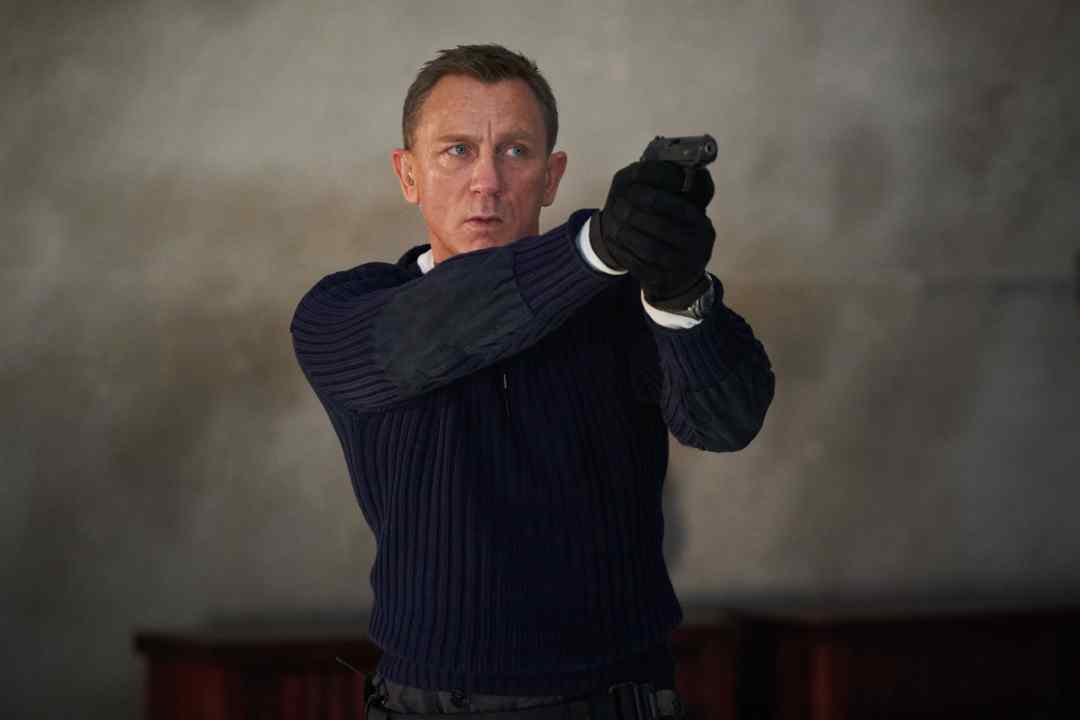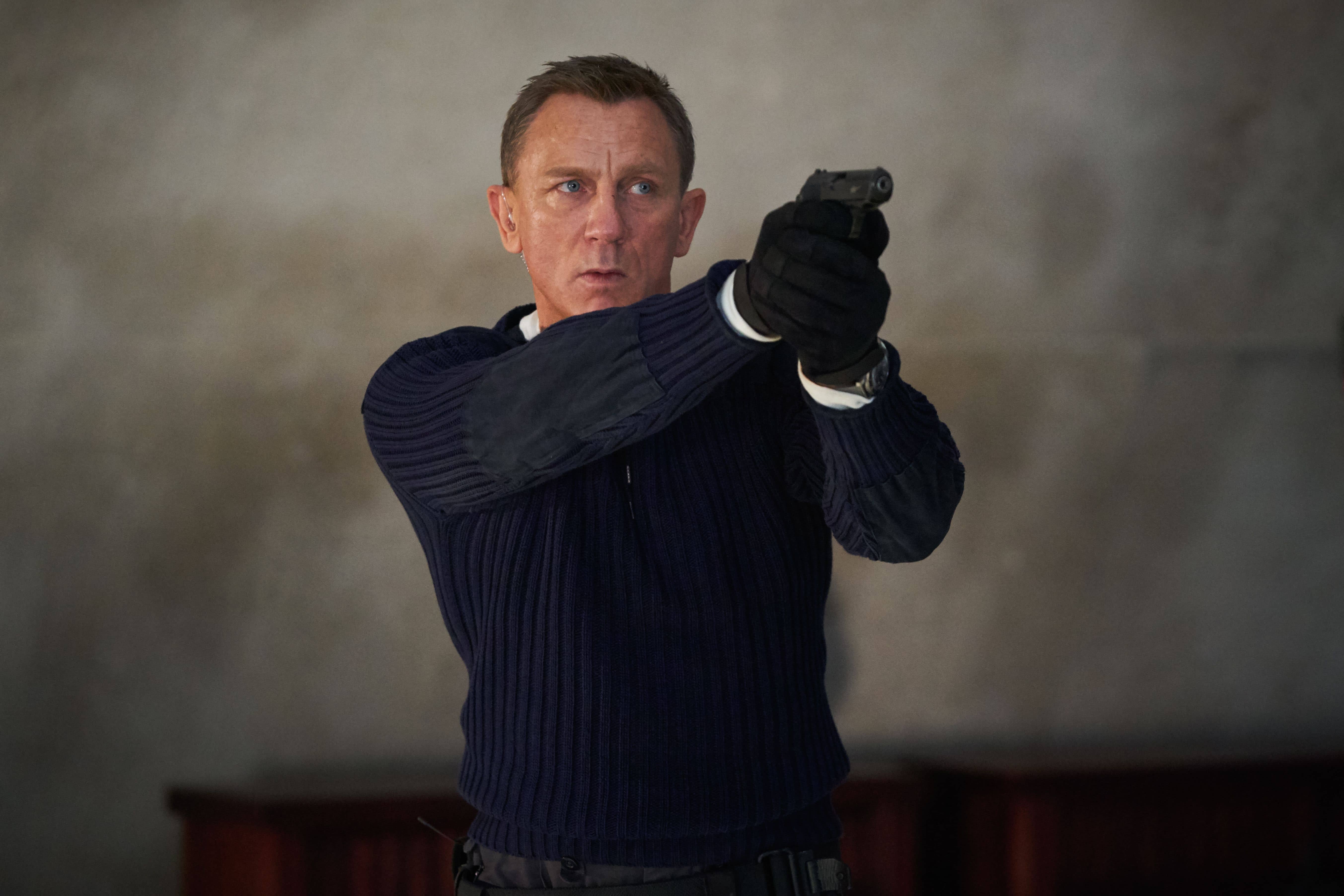Have you ever wondered what Vladimir Putin thinks when he watches a Bond movie?
When the credits roll at the end, does he glance at his mobile phone and wonder if anyone else is listening? Does he stroke his cat and gaze meditatively at the wall-to-ceiling fish tank in his dacha and feel some unease?
James Bond is made up – and everyone knows it. But just like The Crown, 007 has a habit of shaping global perceptions for better or worse. Why else did China censor the Skyfall’s Shanghai scenes and cut out references to torture by the Chinese authorities, however fantastical the plot may have been?
So you can bet your bottom dollar that after the North Korean dictator Kim Jong-un sees the new James Bond film, No Time to Die, this week (assuming he hasn’t seen it already), that he’ll be upgrading the CCTV or doubling the guard outside his bedroom. And he’s not alone. Which is great news for Britain.
How many squadrons of Typhoon fighter jets is James Bond worth to Britain?
James Bond is quite simply soft power with capital letters. Don’t believe me? Just imagine how pleased, how unforgivably smug Emmanuel Macron would be if 007 were French. ‘The name’s, Bond… Jacques Bond…’ It would be unbearable – and that would have been the case long before the word ‘Aukus’ sent the French into a Titanic tailspin of pique.
The irony is that 007’s star has continued to rise even as Britain’s military and diplomatic heft has diminished. Whether or not the long-awaited No Time to Die, 25th in the series, matches the success of 2012’s Skyfall, it will still work its magic again by placing a certain Commander James Bond and the British Secret Service at the heart of a global conspiracy – and the solving of it.
Next year it will be 60 years since the first James Bond film – 1962’s Dr No – hit screens. Arguably, when the first Bond book, Casino Royale, was published in 1953, the premise behind 007 was already looking fragile: yes Britain was still at the centre of a global empire, rubbing shoulders at the top with the Russians and Americans, but the pint paint was peeling off fast. The Suez crisis in 1956 was a case in point.
Come the mid-Sixties, with decolonisation rapidly afoot, sterling devalued and Britain eyeing up her withdrawal from East of Suez, the country was elbowed off the top table and busy plotting a return to international relevance by joining the European Economic Community. And then the long dark days of the 1970s hit, when Britain’s economic deterioration culminated in its castigation as the sick man of Europe.
Yet through the Seventies, James Bond, still in impeccable Savile Row suits and cossetted behind the wheel of a succession of Gaydon’s finest four-wheel grand tourers, continued to take on the world – and win.
To hell with the fact that Britain had to go cap in hand to the IMF in 1976 because the government was broke. Did you see The Spy Who Loved Me? Who cares about runaway inflation, or the fact that Britain had killed off its own space rocket programme, and that rubbish was piling up on the streets during the 1979’s Winter of Discontent? James Bond saw off a nuclear threat, and Jaws, and bolstered Britain’s international reputation in the process.
Did you catch Moonraker? The world did: making it the highest grossing Bond movie until Goldeneye in 1995. Throughout the vicissitudes of the second half of the 20th century, as Britain’s geopolitical power waned James Bond sailed on regardless.
The Bond effect endures, even today. The prestige he brings to MI6 and to Britain – continues to confer an imagined sense of omniscience on Britain’s secret service.
So, I ask you: how many squadrons of Typhoon fighter jets is James Bond worth to Britain? How many frigates trolling around the Caribbean, doing honest work staffed with dedicated Royal Navy personal, is one immense movie franchise worth in terms of international military-security and diplomatic prestige? It’s not for nothing that the Royal Navy just appointed Daniel Craig as an honorary Commander in the Royal Navy to ‘spread the message about what our global, modern, and ready Royal Navy is doing around the world.’
I’ll tell you this much – 007 is worth a flotilla of royal yachts, and I heartily approve of building a new one. Like a trawl of Olympic gold medals, the monarchy or Emma Raducanu, Bond does wonders for our international standing.
And for this reason, the success of No Time to Die matters to Britain. We are on the cusp of an energy crisis and we’re trying to forge a position for ourselves outside the EU in a world that has been ravaged by a pandemic. There’s never been a more opportune time to deploy Bond and all the soft power he affords.
If the latest Bond movie is a box office hit, when Liz Truss next calls a foreign leader, chances are the phone will get picked up in two rings, not four. Bizarre as it may seem, Britain’s real place in the world is bound up with the fate of Bond. He’s a national asset and we are lucky to have him.







Comments